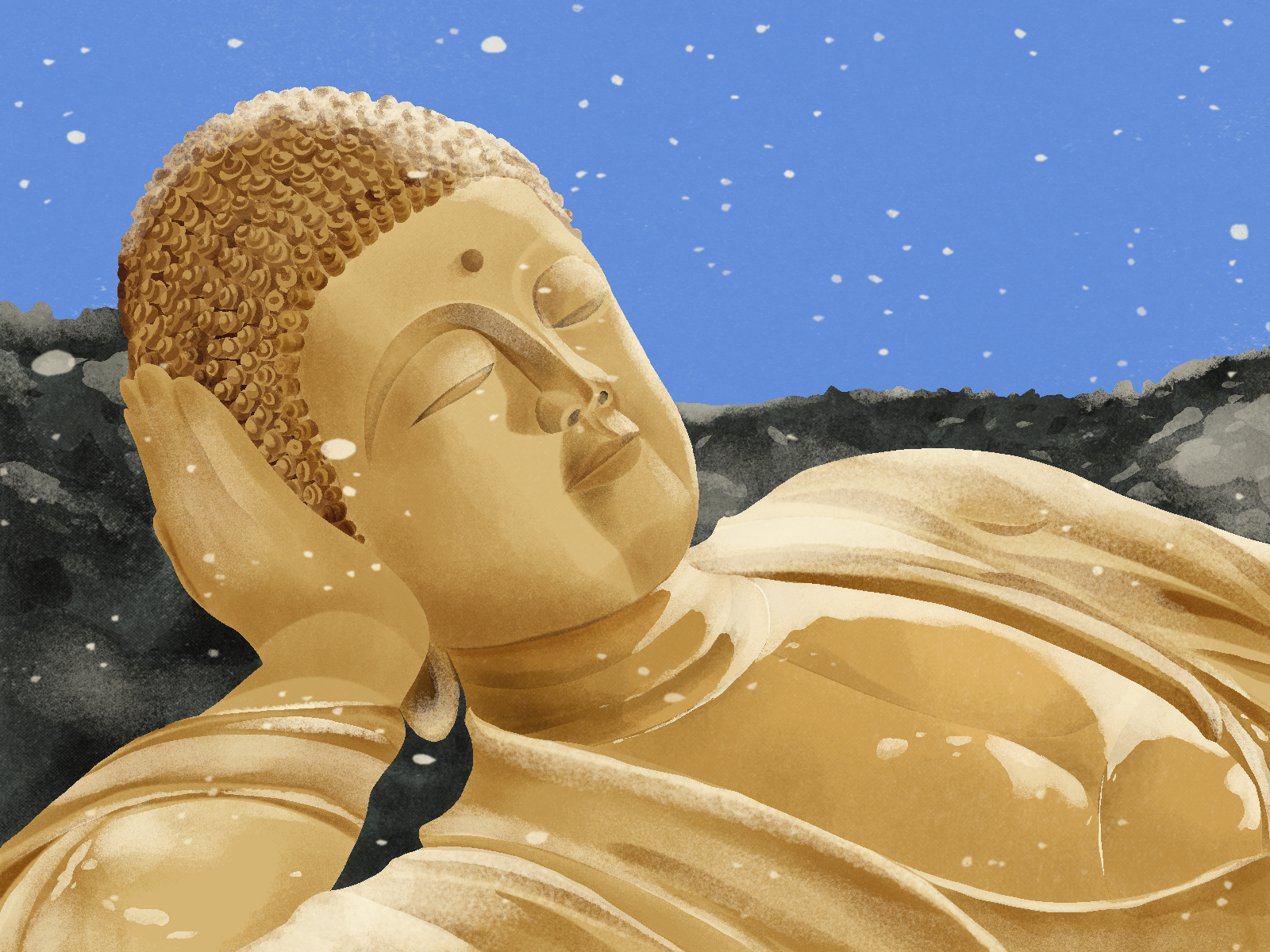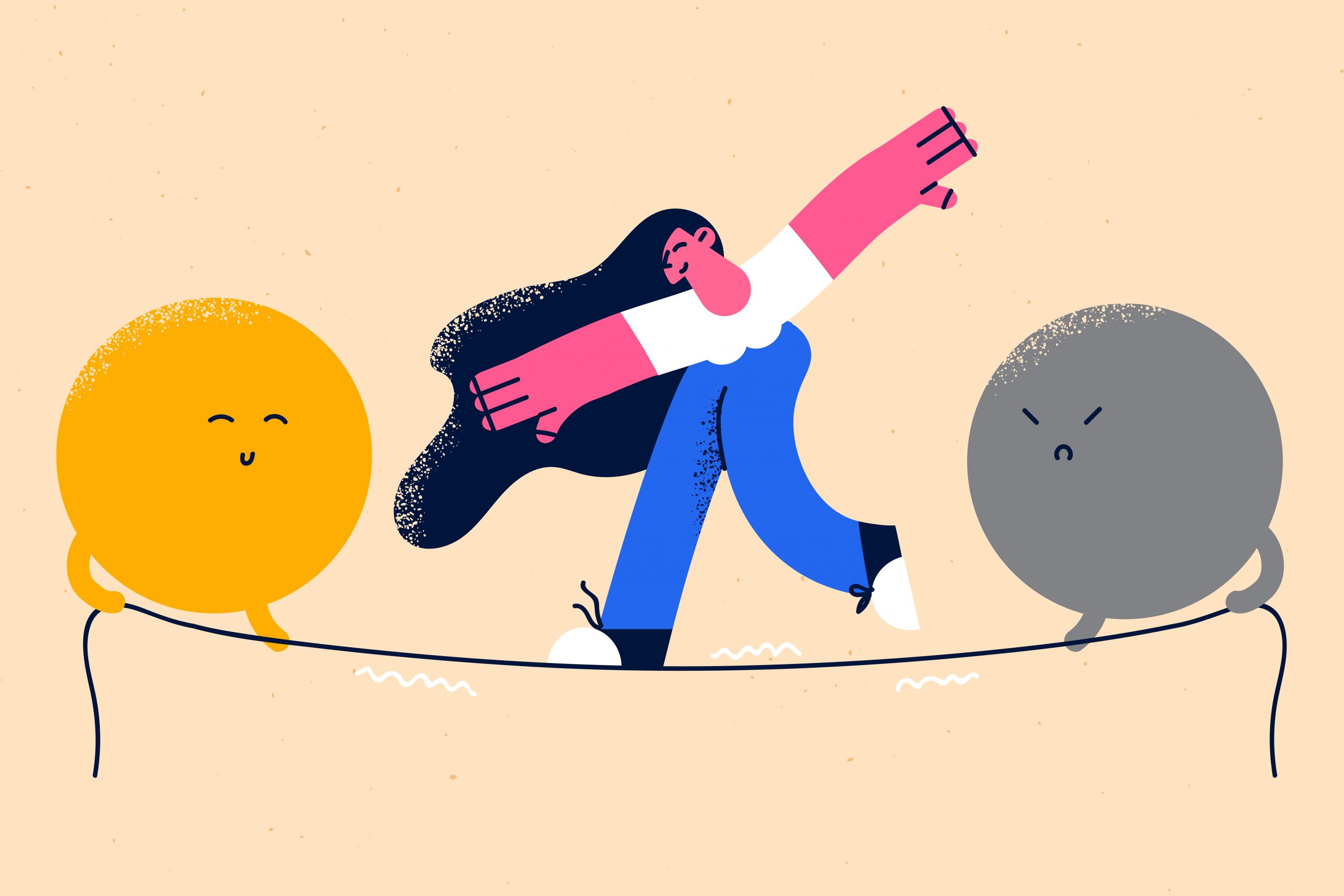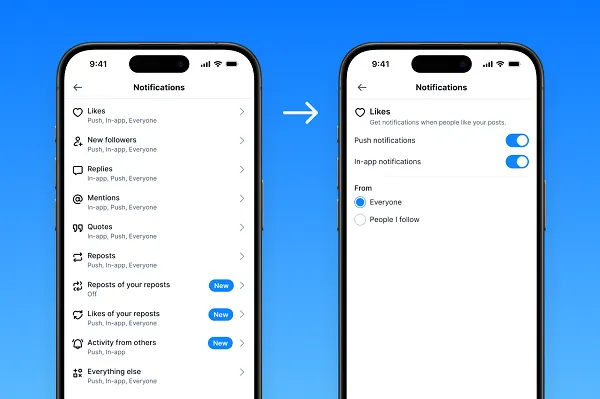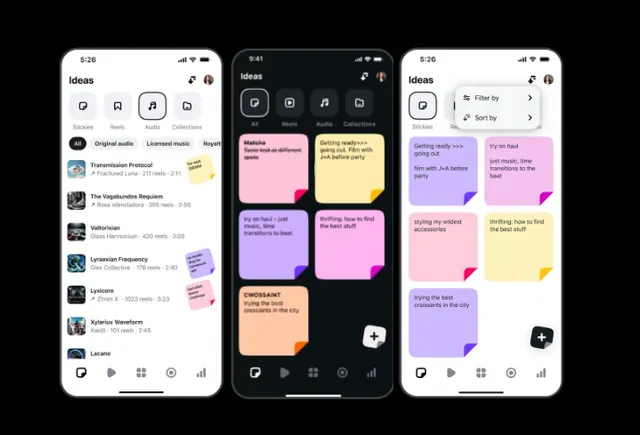Achieve A Calm, Focused State With These Monk-Approved Phytonutrients
It turns out green tea is the secret to stay zen.
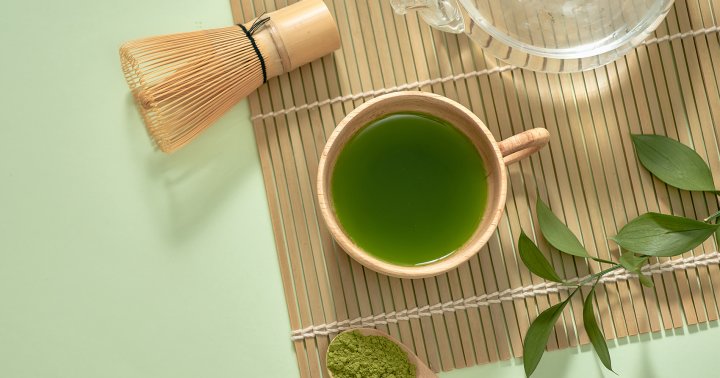
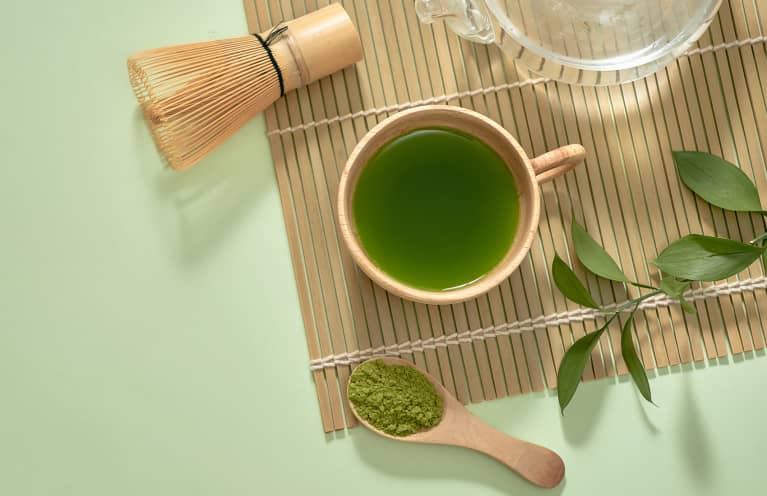
Our editors have independently chosen the products listed on this page. If you purchase something mentioned in this article, we may earn a small commission.
In the coffee vs. matcha debate, I’m team matcha all the way. Ever since matcha lattes have become my morning drink of choice, I’ve noticed improvements in my mood, ability to focus, and overall mental well-being.
Thanks to a number of scientific studies and reviews, I now know that these health benefits are due to the unique pairing of two synergistic compounds: the phytonutrient caffeine and the bioactive amino acid L-theanine. And no surprise here, Buddhist monks discovered and harnessed matcha’s powerful cognitive effects long before I ever did.
From monasteries to tea ceremonies—the history of matcha.
Green tea was first brought to China during the eighth century by monks that traveled there to study Buddhism. “Green tea became associated with meditation because of the relaxation effect of the L-theanine in green tea,” explains Michael Lelah, Ph.D., chief science officer at NutriScience®. “At the time, the monks found that green tea helped them concentrate and remain alert during their many hours of meditation.”
Most modern matcha powders originate from Japan, but a few centuries passed before matcha tea (which contains a good amount L-theanine, ranging from about 6 to 45 milligrams) was first introduced to Japan by Buddhist monks in the 13th century. Lelah explains that it was in Japan that matcha gained its rich cultural history: “Over the subsequent centuries, green tea was not only linked to meditation—ceremonies were also developed for the preparation, serving, and consumption of green tea. This extended the relaxation effect into a social process of drinking,” he says.
How matcha is used today.
Traditional tea ceremonies are still performed in Japan, but matcha is also enjoyed more casually throughout Asia and the Western world. Still, many use matcha to achieve a calm, relaxed yet focused mental state—just as Buddhist monks did—to supplement their meditation practice, power through their to-do list, or simply uplift their spirits as they mosey through their day.
Thanks to modern research, we now have the scientific evidence to support these desired health benefits and confirm the potent power of caffeine and L-theanine that’s been utilized for centuries.
Here are some ways that these synergistic compounds have been found to promote cognitive function and mental well-being.*
Health benefits of L-theanine & caffeine.
According to a scientific review, L-theanine impacts brain wave production—specifically, the levels of alpha and beta brain waves—to help sustain focus over long periods of time, rather than shorter spurts.*
“L-theanine crosses the blood-brain barrier and acts directly on the brain to increase alpha waves to create a state of ‘wakeful relaxation,’”* Lelah explains, adding that this effect can be felt 30 to 60 minutes after consuming L-theanine.
A 2008 study from the Asia Pacific Journal of Clinical Nutrition found similar results, stating that L-theanine had a significant impact on mental alertness and arousal, thanks to its influence on alpha wave production and the central nervous system as a whole.*
When caffeine and L-theanine are paired together, their beneficial effects work synergistically to increase focus, energy, attention, and overall cognitive function.* In a 2010 Nutritional Neuroscience study, participants given L-theanine and caffeine were more alert and better able to focus their attention on cognitively demanding tasks than the placebo group.*
Additionally, L-theanine seems to “cancel out” some of the less desirable side effects of caffeine use. A 2015 study from Psychopharmacology showed that L-theanine works synergistically to counteract the vasoconstrictive effects of caffeine and promote healthy cerebral blood flow.* (Translation: More blood flow to the brain means more oxygen and nutrients that support cognitive function!)
If you’re looking for mood-lifting, energizing cognitive support throughout your day, L-theanine and caffeine just might be your new best friends.*
To harness the cognitive benefits of this dynamic duo the way monks did, try swapping your morning coffee for a matcha latte. If that umami flavor isn't your style (or even if it totally is), you can also leverage the benefits of a high-quality nootropic supplement like mbg’s focus+, which contains caffeine from the coffee fruit, pure L-theanine in its most researched form (Suntheanine®), and other brain-supporting bioactives (like Panax ginseng, guarana, and vitamin B12).*
If you are pregnant, breastfeeding, or taking medications, consult with your doctor before starting a supplement routine. It is always optimal to consult with a health care provider when considering what supplements are right for you.
https://www.mindbodygreen.com/articles/achieve-a-calm-focused-state-with-this-monk-approved-phytonutrient

 Kass
Kass 







